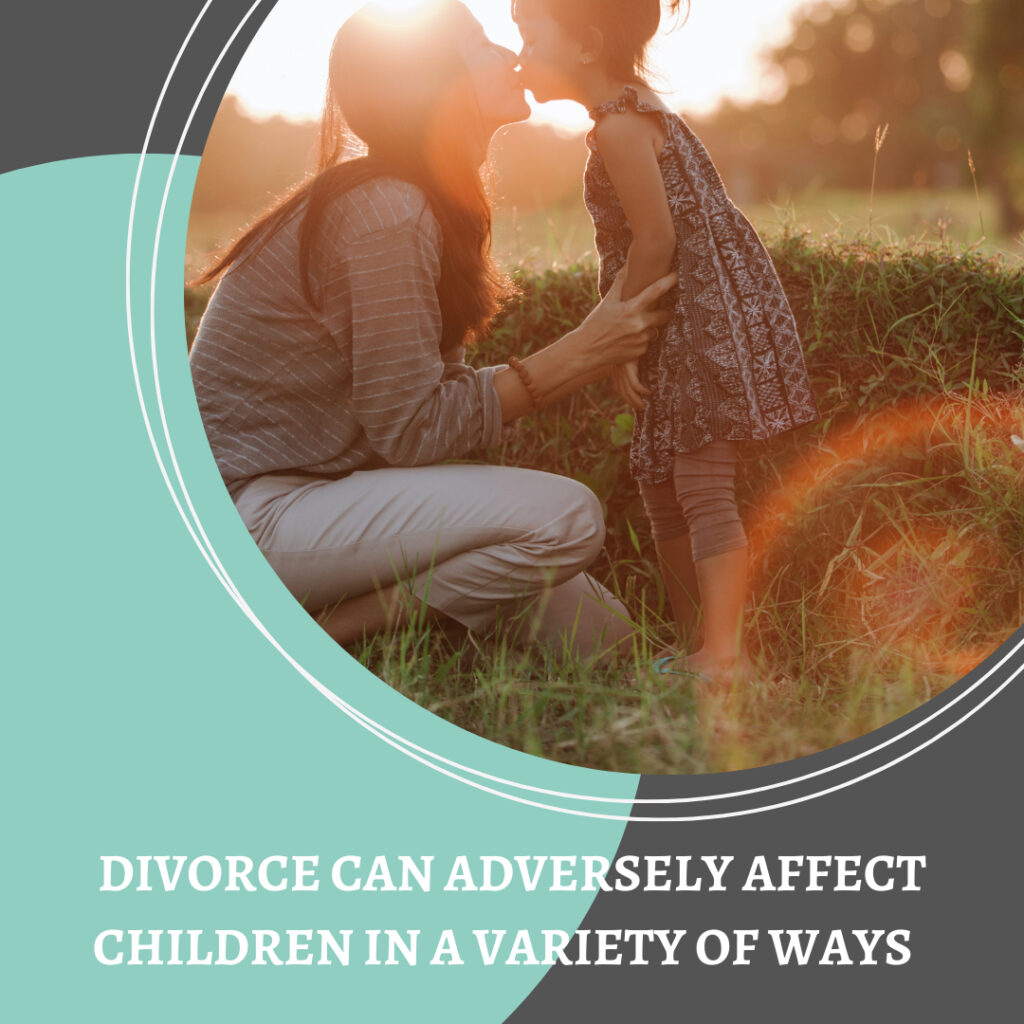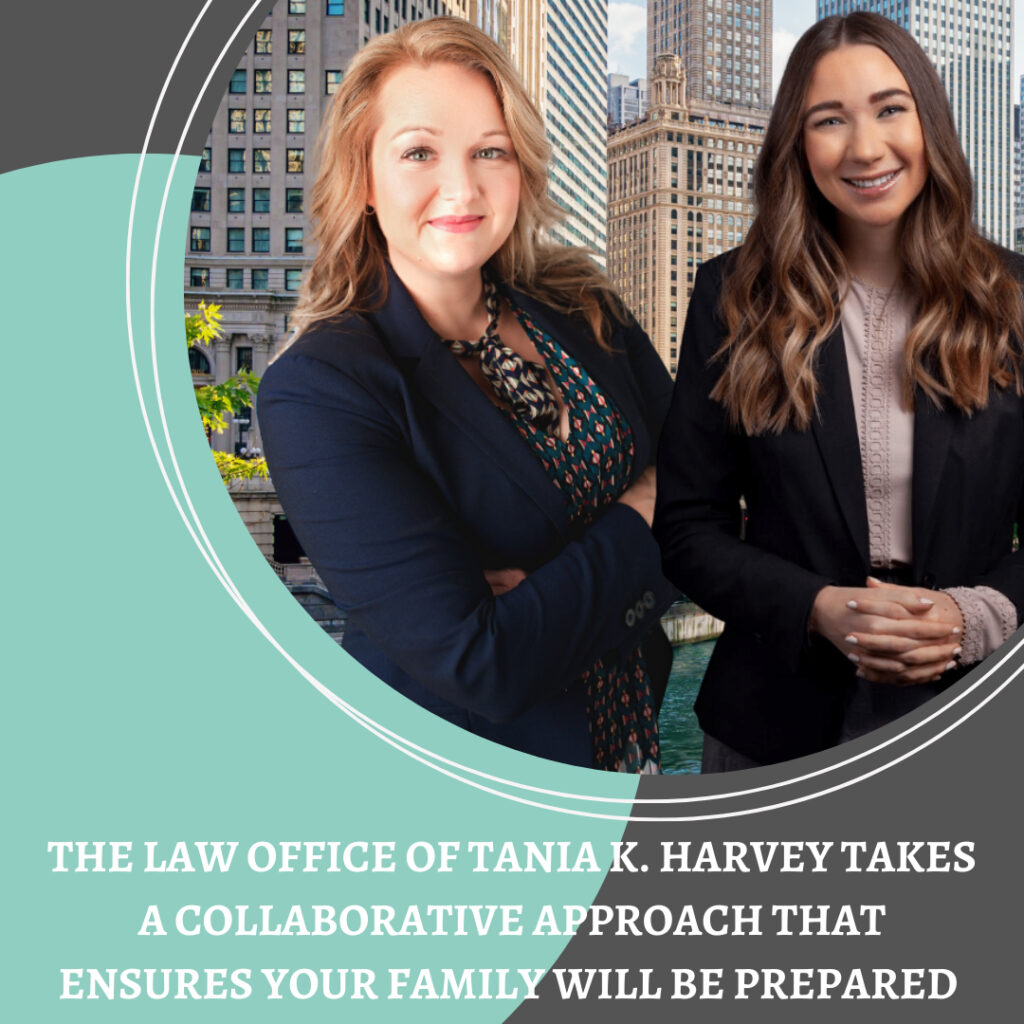It is normal for children to experience sadness and anger when their parents divorce. As a collaborative divorce attorney in Illinois, I know that many people are concerned about how their kids will react to their new family situation. It is important to remember that children react differently based on their age and personality. It’s also important to remember that your child may not understand why you’re getting divorced or what it means for him or her.
It’s vital that parents take time over the weeks and months after the divorce to make sure their children are adjusting well after this life-changing event. A collaborative approach to divorce can set your family up for success by helping you plan for the future and for your new normal after a divorce. Contact The Law Office of Tania K. Harvey today for a consultation. 312-803-5845
Ways that divorce can affect children
It’s important to understand that the effects of divorce on children vary greatly depending on age, personality and other factors. However, there are some common themes:
- They may feel abandoned by one or both parents – particularly if they see their parents as “good” role models and actually want their parents to stay together.
- They may feel guilty for being happy about their parents’ split as this means someone is not getting what they want or deserve.
- They may feel rejected by one or both parents if they were previously close – especially if one parent wants full custody but does not get it.
- They may have difficulty coping – Children may deny that the divorce is happening or become deeply upset because they don’t understand what is happening or why it is happening.
- They may have difficulty understanding how their parents’ roles have changed – Kids may be confused about who is responsible for what or feel like they have to choose between parents.
As a collaborative divorce attorney in Illinois, I work to ensure that all members of the family understand what this transition will look like. Part of the collaborative process is to plan for the future and ensure all family members know what their new normal will be like. This can mitigate the emotional effects on the children involved.
You need to make sure they don’t feel rejected or abandoned
If one parent plans on leaving the household, it’s important that they keep lines of communication open until they know where they’ll be living next. Children may feel completely rejected when this happens without warning or explanation, especially if it occurs suddenly and without any advance planning on how children will be cared for afterward.
To help your child cope, you should emphasize that both parents love them and that the decision to separate is not their fault. Explain that there are different ways that families work, including living separately. Encourage them to talk about their feelings as much as possible, even if they don’t feel comfortable doing so with you.
When a child’s parents divorce, they may become afraid of being abandoned and may feel as if their parents don’t love them anymore. They also may develop separation anxiety, which is the fear of being separated from a caregiver or parent. They will need reassurance that they are loved and valued by both parents, as well as reassurance that they are safe in their new environment.
Additional effects divorce may have on children
- They may have trust issues – After a divorce it may be difficult for a child to trust adults and form close relationships with them or even their peers.
- They may feel guilty – Kids, especially younger ones, can feel like they are responsible for their parents’ break-up.
- They may have behavior issues – The emotional impact of divorce on children can manifest itself in behavior problems. They may act out or completely withdraw. It is completely normal for behavior to change, but if it interferes with their ability to function, they may need additional support.
How you can support your kids through a divorce
One of the best ways to support your child through a divorce is to prepare them in advance of big life changes. Have a family discussion before one parent moves out or prior to other major changes. Those conversations should be neutral and parents should avoid blaming themselves or their spouses or giving too much detail about why they are divorcing.
The emotional impact of divorce on children can be mitigated by the parents’ ability to communicate with each other about what is happening and how it will affect them and their kids. Children also benefit from knowing that both parents still love them very much, even if they live apart from one another now. There are many different types of families and your new normal is just one type of family.
Another thing that may be helpful is having some consistency. Having a schedule and sticking to it is critical. Having discussions to ensure you and your former spouse are on the same page with discipline and important issues is also important. Keeping some behaviors and routines can create more of a sense of stability and support that children need.
Because our collaborative divorce attorney in Illinois focuses on alternative approaches to divorce, families are better prepared for what the future holds. They work together throughout the divorce process to make sure that a plan is in place that considers the best interests of the children first.
Contact us today for an alternative approach | collaborative divorce attorney in Illinois
It’s normal for kids to be upset by a divorce and it’s important that they have support. You can help them adjust to this new situation by understanding how they are going to react and what you can do to help them cope with their emotions. Although it may not always be easy, children have a right to have their emotions and need healthy outlets to express their feelings. An important thing to remember is that children are resilient, especially when they feel loved by both parents. Contact us today for a consultation. 312-803-5845



